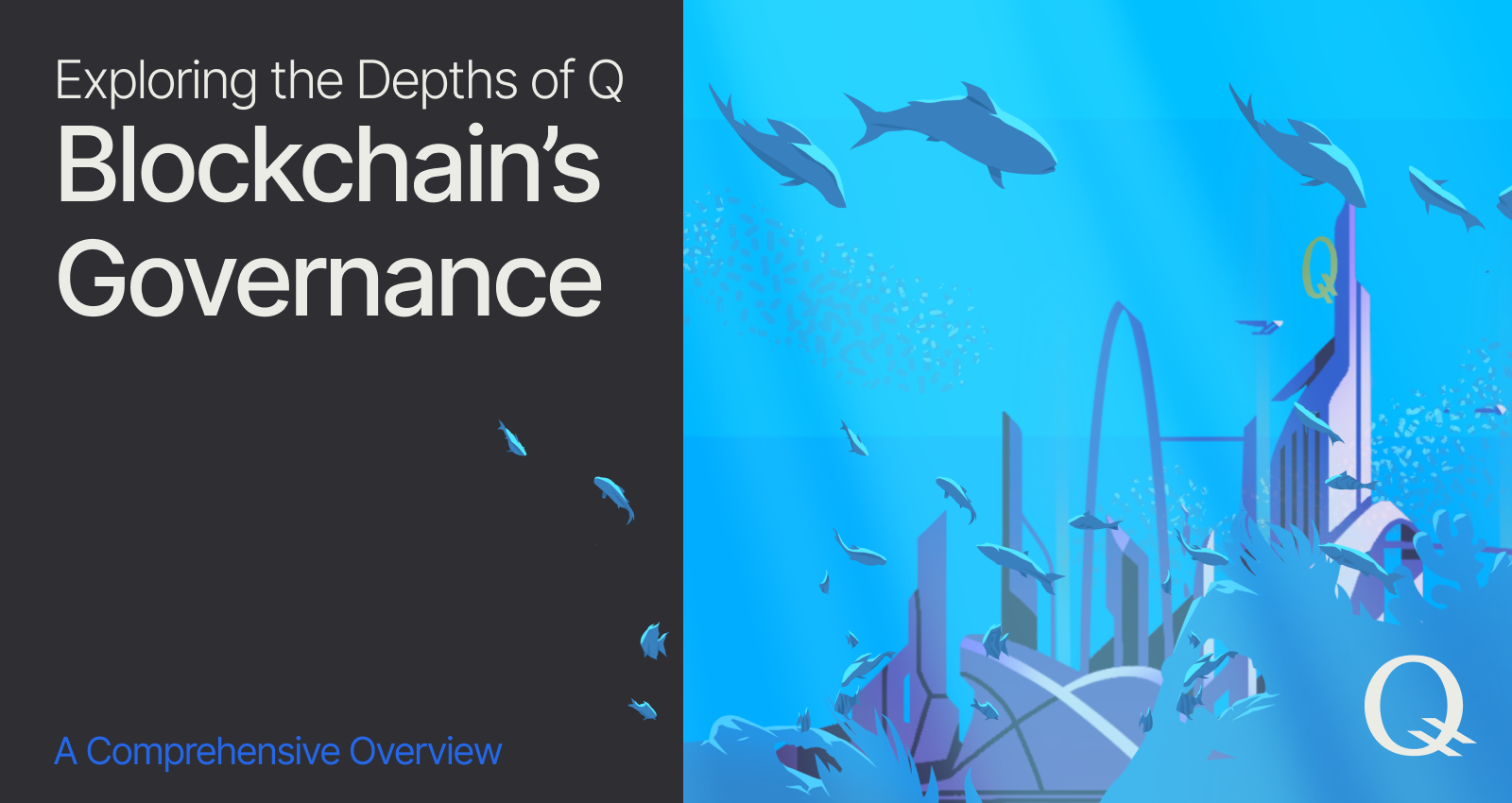The concept of governance remains a central topic of debate and innovation in the global web3 ecosystem.
Q Blockchain, a pioneering platform in this regard, offers a unique perspective on the matter. A recent “Q & A on Q (Part 1)” blog post dives deeply into the details of Q’s approach to decentralized governance, addressing common queries and misconceptions.
The Need for Decentralized Governance in a Digital World
One of the fundamental questions addressed is the need for a decentralized governance system in the presence of established legal frameworks. Traditional nation-state legal systems struggle in the digital, borderless realm for several reasons:
- They are often incompatible with the global scale of digital interactions
- They tend to be slow when adapting to new technologies
- They vary greatly in quality and effectiveness across different jurisdictions.
Q’s decentralized governance approach seeks to bridge these gaps, offering a more efficient, inclusive, and globally applicable solution. It’s not just a practical response to current limitations but a forward-thinking move, preparing for a future where traditional institutions may further erode trust and effectiveness.
Implicit vs. Explicit Governance in Crypto
Q Blockchain also touches upon the debate between implicit and explicit governance in crypto. Implicit governance, or social consensus, relies on informal coordination among network participants. This approach is suitable for simpler, more static protocols but less effective for evolving ones.
Q opts for explicit governance, enabling structured, transparent decision-making processes. This choice supports continuous innovation and adaptation, ensuring that the protocol remains relevant and effective in the face of technological advancements and changing economic realities.
Permissionless Nature and Root Nodes
The blog post further clarifies the confusion around the permissionless nature of Q’s system, particularly regarding Root Nodes. Despite Root Nodes being elected, the system remains permissionless, as anyone can participate in the election process. This election system aims to ensure that Root Nodes are competent, independent, and resistant to censorship, which makes for a robust and secure network.
Role of the ICC in Dispute Resolution
Another aspect of Q’s decentralized governance is the role of the International Chamber of Commerce (ICC) in dispute resolution. The ICC’s involvement is strictly limited to interpreting the rules set out in the Q Constitution. It acts only reactively, reducing the risk of arbitrary legal overreach. Should the community find any ICC ruling unfair, the governance system allows for amendments to the constitution, ensuring checks and balances against any potential misuse of power.
Constitutional Slashing and Network Security
Q’s approach to constitutional slashing, compared to automated slashing mechanisms, is a key differentiator for the protocol. It acknowledges scenarios beyond the control of node operators, promoting fairness and decentralization. This method also protects against bugs that could lead to unjust penalties, striking a balance between network security and operator fairness.
Rejecting the Notion of Social Contracts
The Q protocol strongly opposes the concept of a social contract in crypto, on account of its ambiguity and potential for misuse. This is why it is optimal to have clear, written rules and agreements, which reduce liability risks and provide a solid foundation for dispute resolution. This stance aligns with Q’s overall philosophy of explicit, transparent blockchain governance.
A Call for Continued Dialogue and Innovation
Building systems for shared blockchain governance security is complex and requires continuous critical thinking and input from diverse perspectives. Q’s open approach to feedback and discussion signals a commitment to evolving and refining its decentralized governance model in line with community needs and technological advancements.
Q protocol’s detailed exploration of existing blockchain governance issues provides valuable insights into the challenges and opportunities in this field. Its approach underscores the importance of adaptability, transparency, and community involvement and it is most exciting to witness its continued evolution.






Leave a Reply